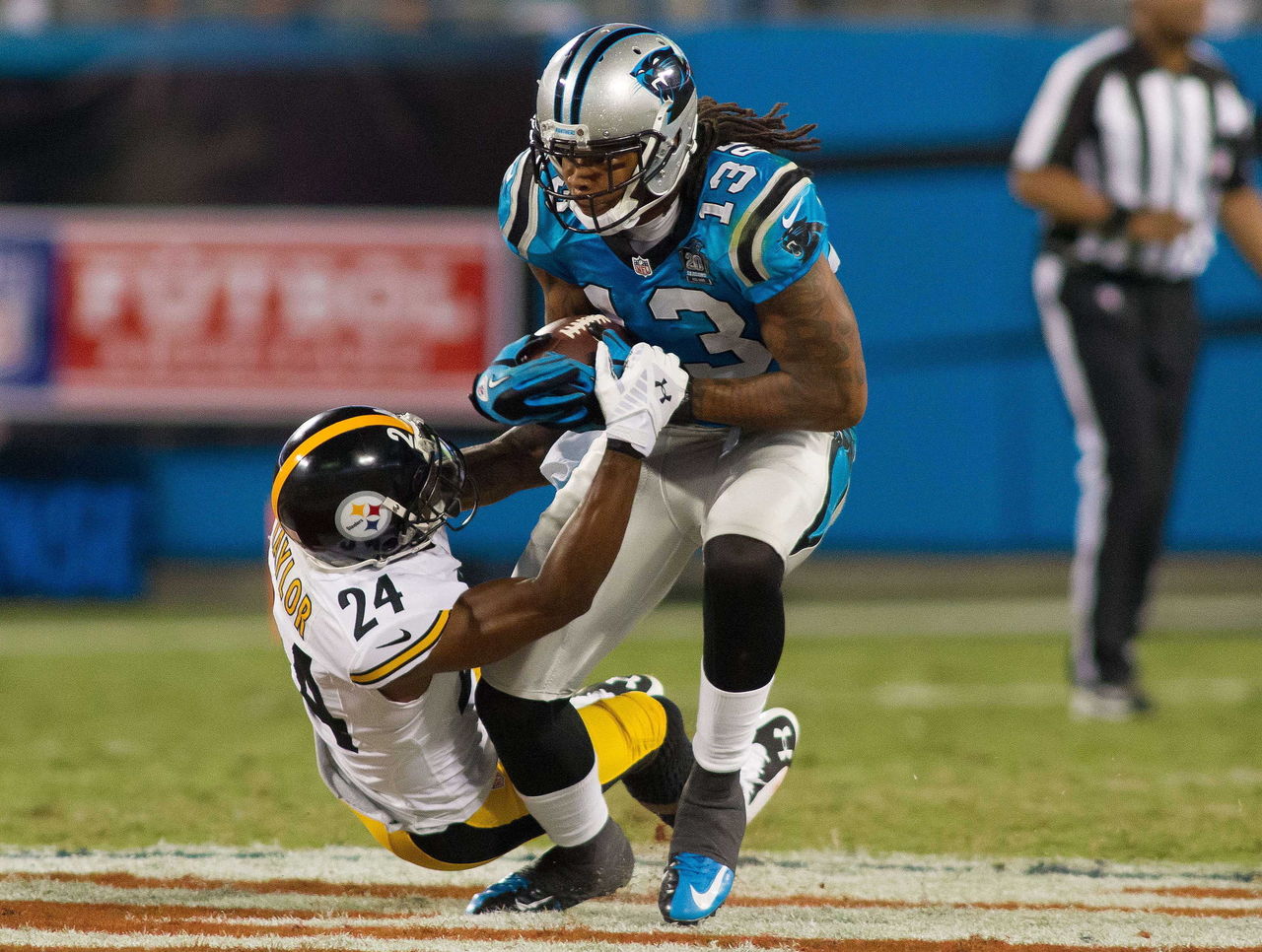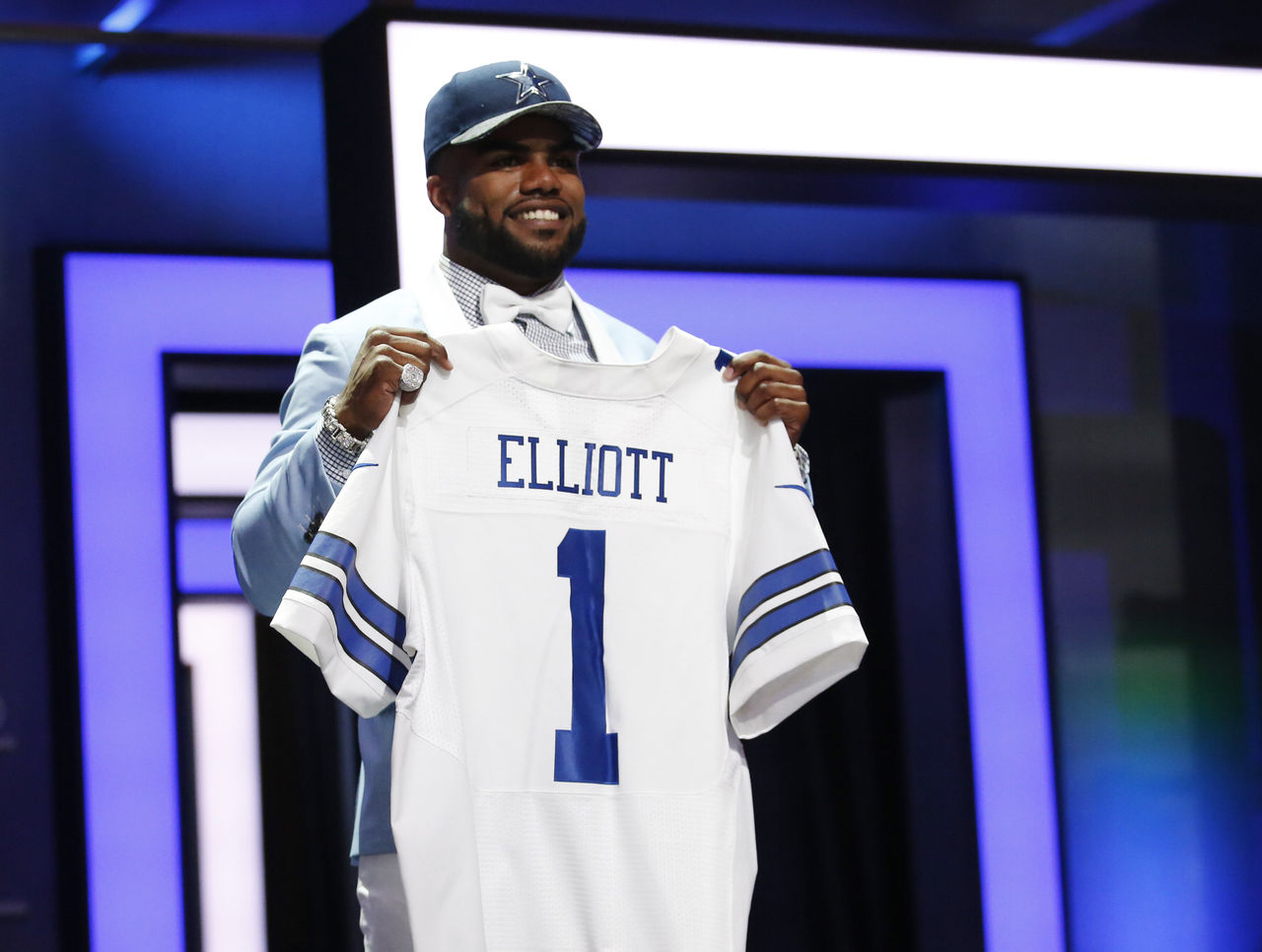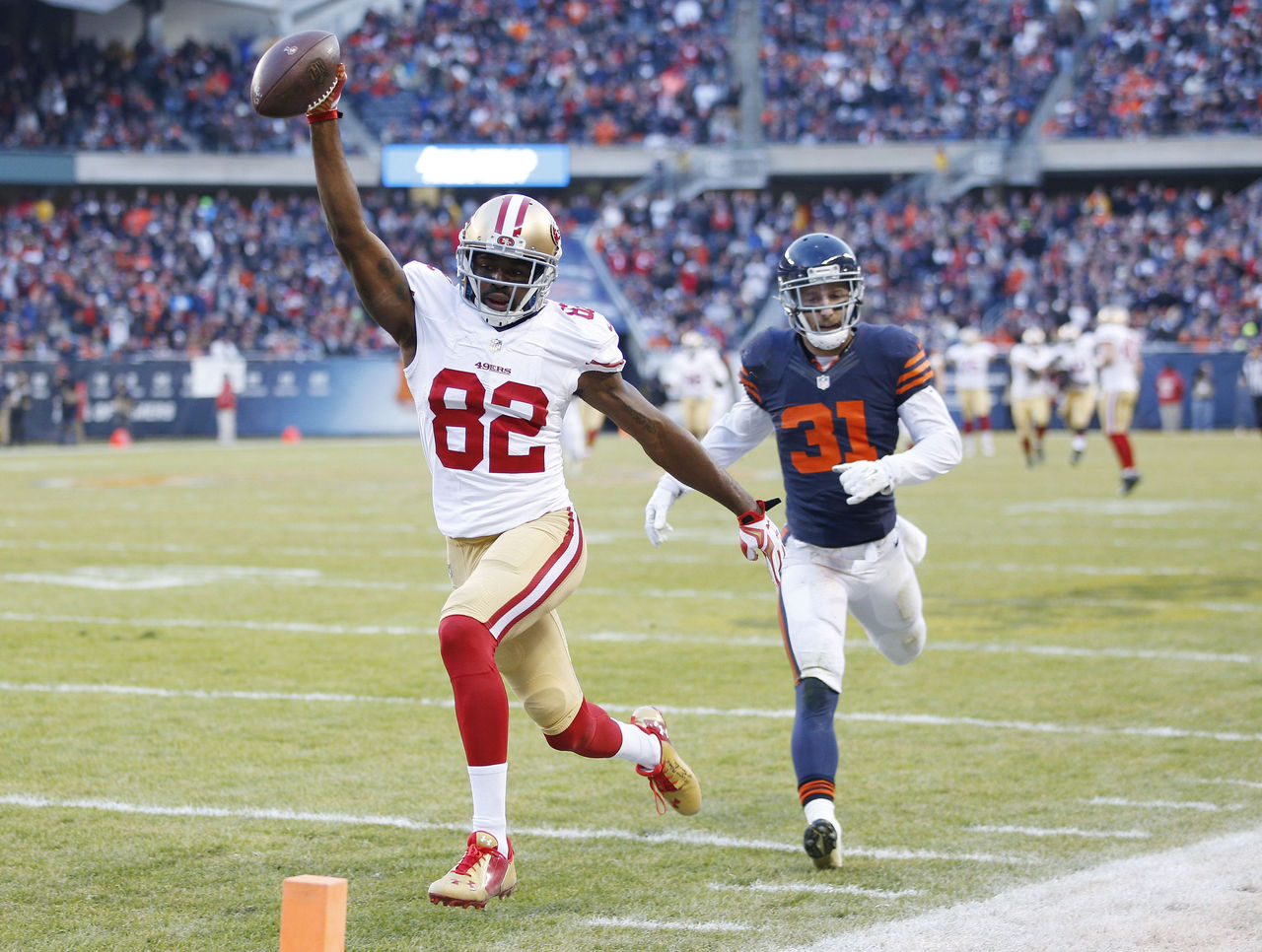Reconciling NFL fandom with fantasy football
Most fantasy football participants likely have real-life rooting interests for individual players or teams that can perhaps cloud judgment when it comes to making roster decisions. It's not usually possible to have it both ways - a high-performing collection of players who happen to feature for NFL teams cheered for by the fantasy owner.
(Note: This piece assumes that the goal for any fantasy football owner is to perform as well as possible in his or her respective league. Fantasy sports mean different things to different people, so if someone derives enjoyment from assembling a roster solely of players they have a real-life affinity for, so be it, but it's likely not the norm.)
Here are some pros and cons of fandom, and how they impact fantasy roster construction. How many of these tendencies can you recognize in yourself?
The negatives of fandom

Reaching for players from your favorite team
The temptation to overvalue players from a preferred club is arguably the most common negative influence of fandom. Ideally, a cold, calculating approach would only take into account a player's predicted performance and not the uniform they wear, but it's hard not to view their potential through black-and-yellow colored glasses (in the case of Pittsburgh fans).
A hypothetical Steelers fan who selects Ben Roethlisberger as the third quarterback off the board is likely guilty of overvaluing one of his favorite players. While a healthy Roethlisberger may not necessarily end up as a poor selection, there's little doubt that he'd be available a few rounds later in the draft. The desire to lock up a preferred player as early as possible can compromise the makeup of the rest of the roster.

Purposely avoiding players from rival clubs
In keeping with the Steelers theme, let's say a Ravens fan has the first selection in a 2016 fantasy draft. Pittsburgh WR Antonio Brown is the consensus No. 1 pick, and there's little doubt as to why. In a league that's only getting pass-happier, Brown has played all 16 games for three straight seasons, recording at least 110 receptions, 1,499 yards and eight TDs in each, with career bests in yards and catches in 2015.
Whether in standard scoring or PPR formats, Brown is universally regarded as the man to have. But let's say that Ravens fan can't bear the thought of selecting Brown, because for two games per season, Brown's torching of the Baltimore secondary, while beneficial fantasy-wise, has a negative impact on the Ravens' chances of winning a real-life meeting with the Steelers.
Instead, the Ravens fan opts for either Odell Beckham Jr. or Julio Jones with the first overall pick. Beckham Jr. and Jones are the consensus second and third overall choices, so their production isn't likely to be that far off from Brown's, but the reasoning behind picking either of them is flawed. They were selected simply because they don't happen to play for a rival of the Ravens.

Stacking a team with multiple players from one club
While there are a few exceptions (Vikings, Rams, Titans, etc.) most teams have a handful of fantasy-relevant options at the skill positions who are safe every-week starts. Stacking - the practice of selecting multiple players from one club - is a high-variance strategy. On weeks where a team scores 35 or more points, it works out well, because chances are there's been enough yards and touchdowns to go around.
But on down weeks, there's likely not enough production to satisfy two or more players from the same team, so spreading the risk around is the safest course of action. Like reaching for a player from your favorite team, the tendency may also exist to double (or triple) down and choose multiple players from one club.
The positives of fandom

You can easily identify sleepers from your favorite team
Instead of reaching for a player from a favorite team, as mentioned above, consider using that in-depth understanding of your preferred club's roster to identify a late-round sleeper.
Chances are, Panthers fans cognizant of the team's lack of depth at wide receiver were able to target then-rookie Kelvin Benjamin toward the end of 2014 fantasy drafts. Benjamin recorded nine TDs and just over 1,000 yards, providing significant fantasy value relative to his draft position.
Perhaps Titans fans, instead of gambling on the likes of DeMarco Murray or Dorial Green-Beckham, will take a late-round chance on WR Tajae Sharpe. The fifth-round pick is coming off a season in which he led college football with 111 receptions while at Massachusetts. He has reportedly been seeing time with the first team in Tennessee's crowded but star-free receiving corps.
Choosing a sleeper from your favorite team provides the same emotional attachment that reaching to select an established star would, but with a lot less risk. Most backup running backs and wide receivers won't pan out anyway, but if your selection ends up succeeding, you'll feel secure that your fandom of a particular club helped identify a viable contributor who may not have been obvious to others.

You can predict who other owners will select
Assuming you know the other participants in your fantasy league, chances are that you're aware of their rooting interests. This information allows you to have a reasonable idea of how their draft picks will unfold, helping you plan your future selections.
Knowing the tendencies of fellow owners is arguably a bigger advantage in auction formats, where there are no draft spots and any player can be had by the highest bidder. When it's your turn to nominate a player for bidding, you don't necessarily have to choose someone you have any intention of paying up for. The process can be used to lighten the wallets of fellow participants whose rooting interests are well established.
For example, perhaps you're skeptical that rookie Cowboys RB Ezekiel Elliott will live up to the hype, but you know that the Dallas fan in your league likely feels otherwise. By nominating Elliott and making a low-to-mid-range bid, you're guaranteed a positive outcome. Either you'll get Elliott at a price you're comfortable paying, or the Cowboys fan will spark a bidding war that results in him or her exhausting a sizable chunk of their funds early on.

You can fall back on enjoying the on-field product
Having a real-life rooting interest ultimately allows for some enjoyment of the sport itself, rather than solely focusing on the performance of a fantasy roster. Unless it's a high-stakes league where a significant amount of money is on the line, having a rooting interest also provides somewhat of a hedge against a poor fantasy week.
Would it be frustrating to lose a fantasy matchup because your opponent opted to start, say, Danny Woodhead during his four-touchdown explosion in Week 15 of last season? Sure, but the pain would be lessened for any Chargers fans on the receiving end of that loss.
Going back to a scenario listed earlier, let's suppose that hypothetical Ravens fan happened to have Brown on their fantasy roster last season. He or she would have been somewhat let down by Brown's 12-103-0 receiving line over Pittsburgh and Baltimore's two matchups, but that disappointment would have been lessened by virtue of the Ravens winning both games.